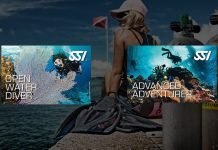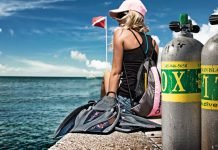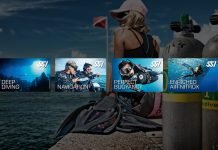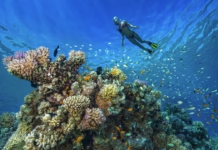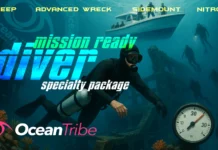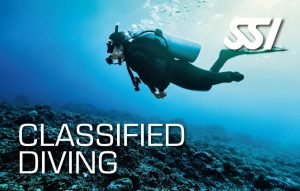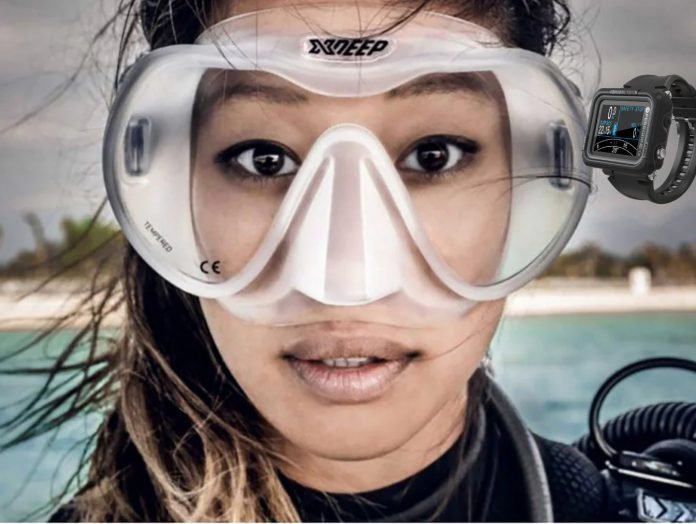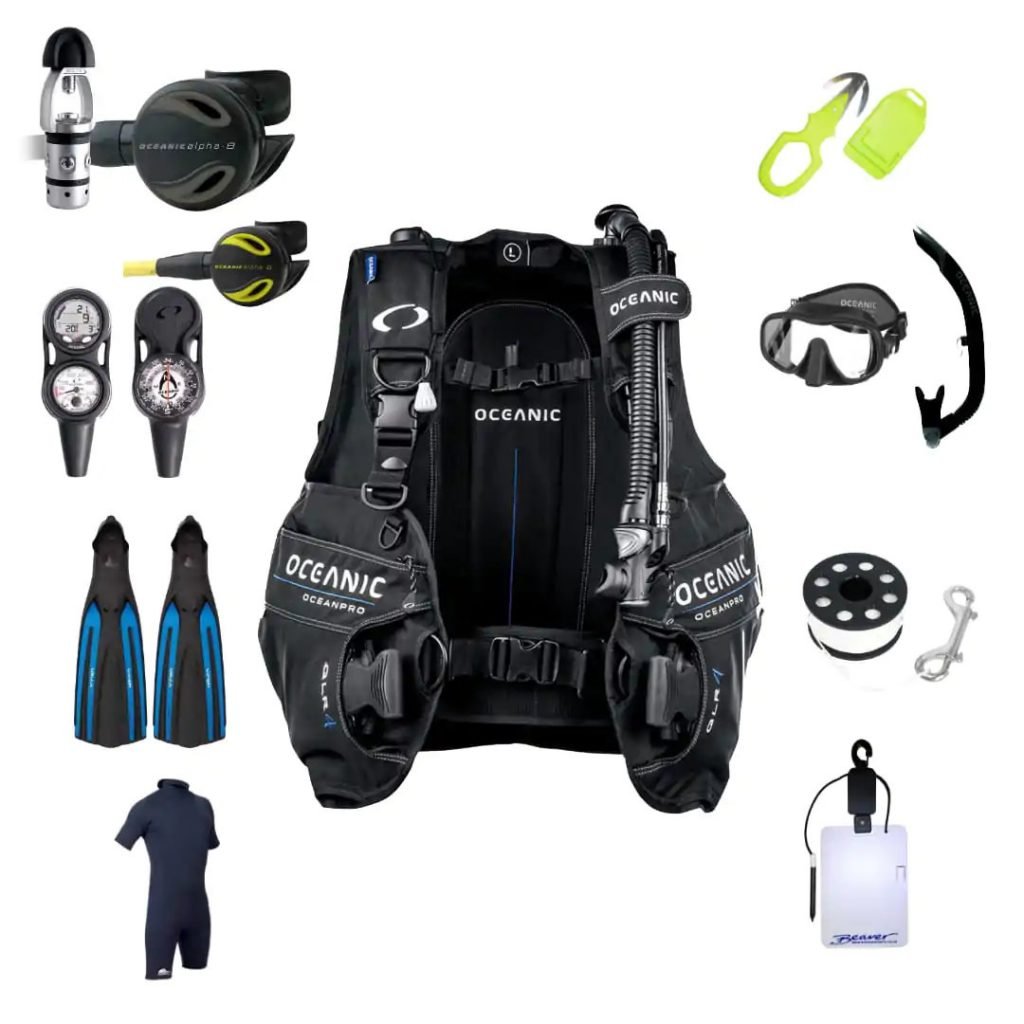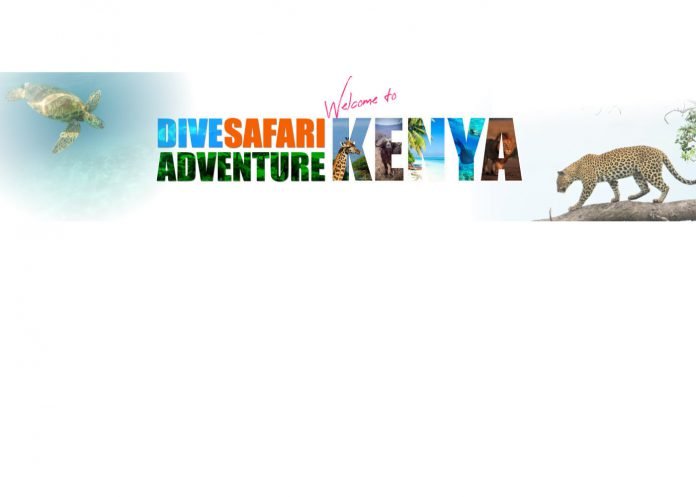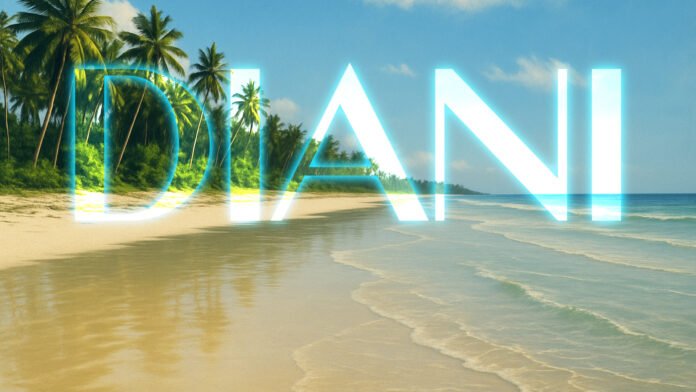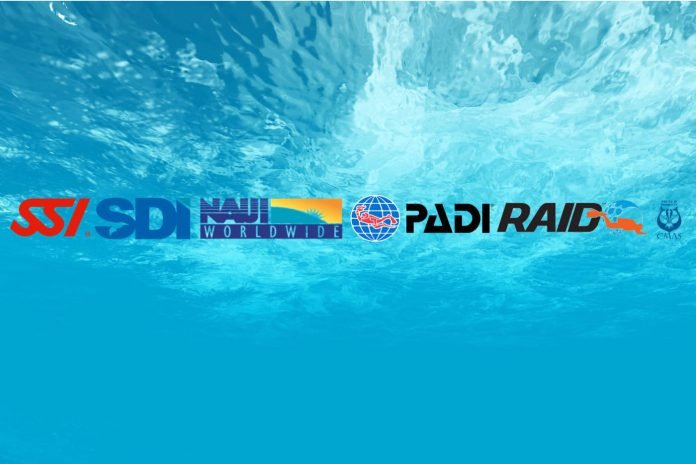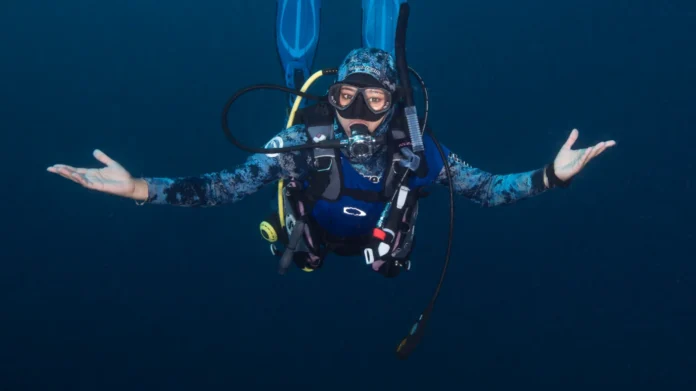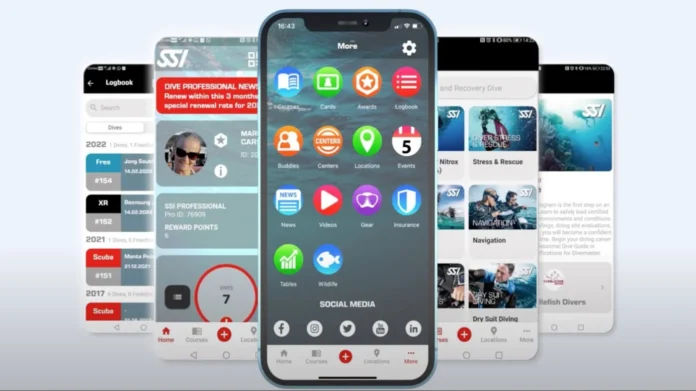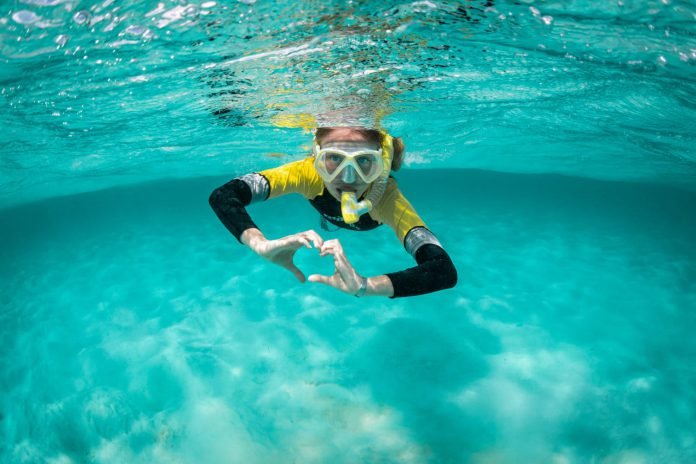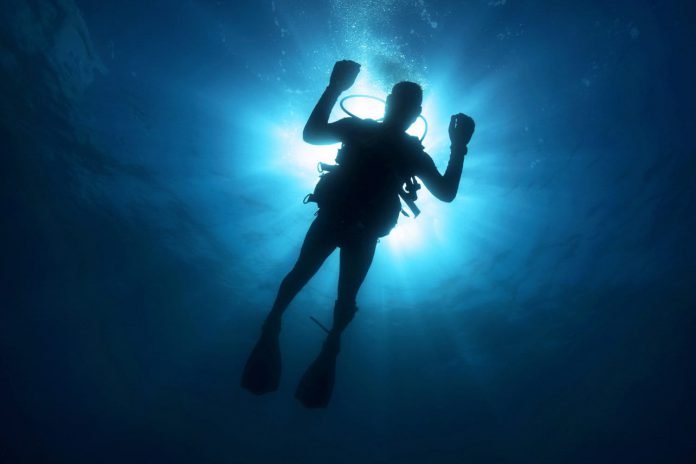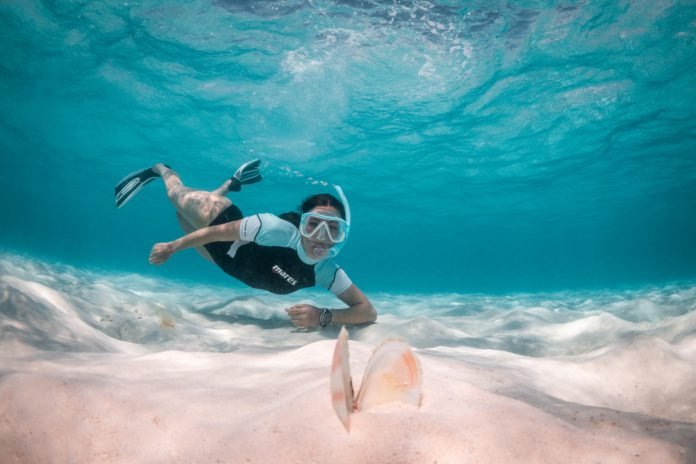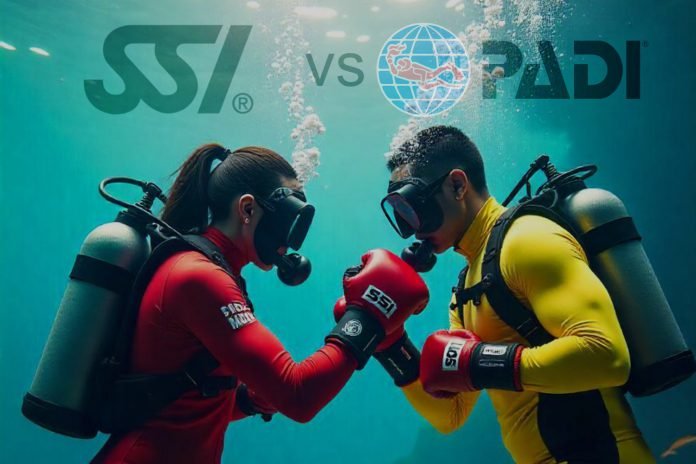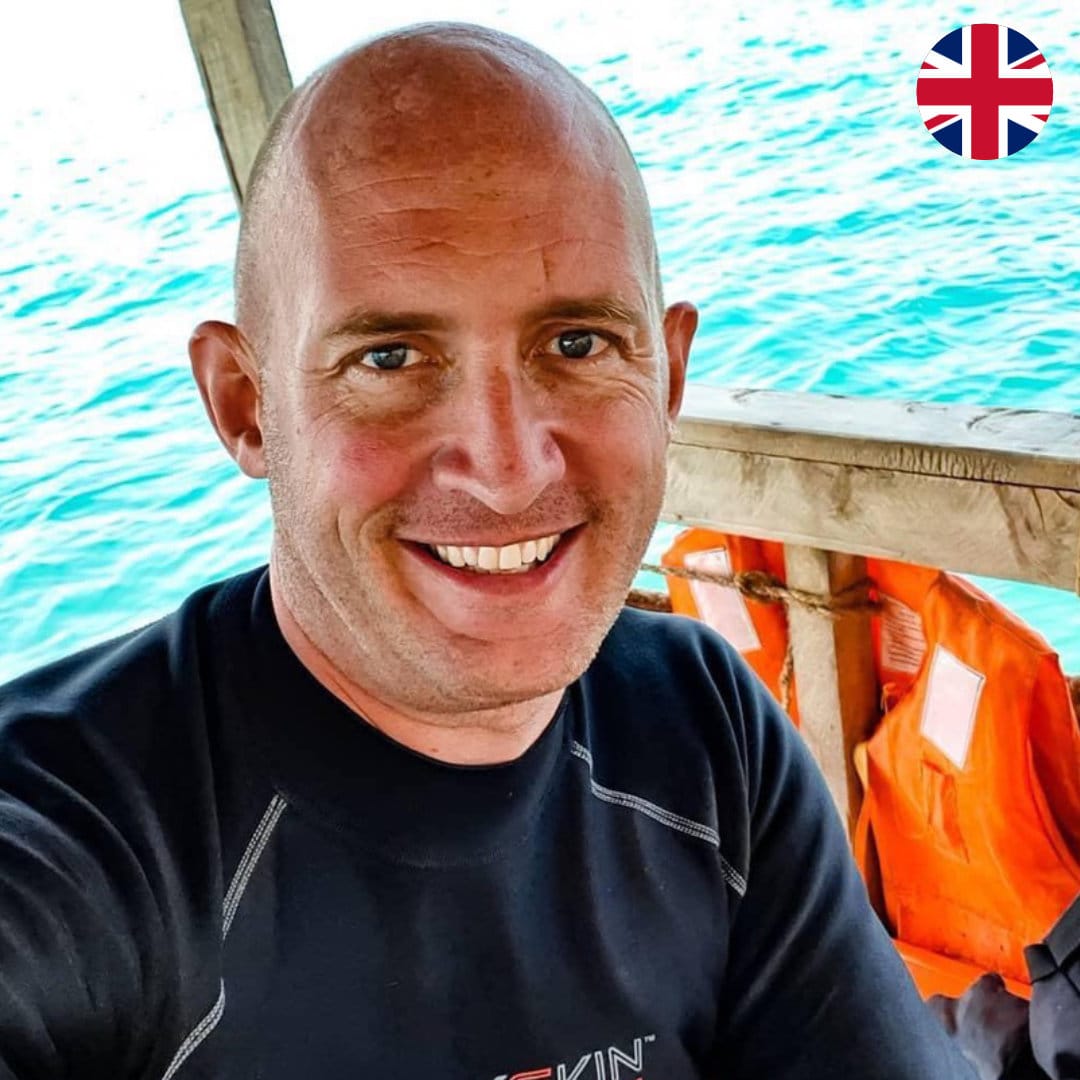What are the differences between PADI and SSI diving courses? Which is Better for Certification?
You are considering becoming a certified scuba diver. Obviously you are looking for the best place to learn. Under the guidance of a highly trained professional backed up by standards and regulations.
The two largest diver training agencies in the world are: PADI (Professional Association of Diving Instructors) and SSI (Scuba Schools International).
We get asked the question a lot at Ocean Tribe: “What are the differences between PADI and SSI diving courses? Which is better for certification?” So let’s compare the two organisations to help pick the best choice for you.
Are both scuba diving licenses internationally recognised?
Certifications from PADI and SSI are both internationally recognised. Both PADI and SSI are members of the World Recreational Scuba Training Council (WRSTC). The WRSTC regulates and audits both agencies and agrees on minimum standards a dive training agency must meet to be an approved agency.
SSI certifications and PADI certifications are recognised all over the world and accepted as approved certifications. So you don’t have to worry about being turned away with either card.
Teaching Methodology
Here is where there are some slight differences between the agencies.
Both SSI and PADI allow you to complete the dive knowledges sections of the course online through SSI Digital Learning and PADI eLearning. This means you get more time on your holiday without having to sit in a classroom, which used to be the case.
However when it comes to the practical training PADI requires that dive students complete the training skills in a specific order in order to pass and proceed to the next section.
SSI on the other hand. Is a lot more flexible and if a your are having trouble mastering a skill, allows for rearranging the skills in order to build your confidence by completing the other skills first and not wasting time. This ensures that the program is student focused. And everyone can progress at their own pace. SSI Instructors are also permitted to add information and/or skills if that improves the quality of the scuba diving student.
Difficulty- Is one training agency easier or more difficult than the other?
In a broad sense both the training agencies include all the skills you need to become a safe diver. The online learning, backed up by instructor knowledge and workshops ensures you know the theory. This is true of both SSI and PADI.
But as mentioned above there are some differences in how the courses can be taught.
Are these considerations important to you as a diving student? Well imagine that you are having problems with a skill on the course. With PADI you must complete it before you can progress to the next skill set. This can affect your confidence and occasionally for some students can be a little embarrassing. Especially if other students are waiting for you and not encountered the same issues.
On an SSI course the instructor can move the show on and perform a few “easier” skills to boost your confidence and then come back to the problematic area later. When you are more comfortable. This generally results in a much lower “drop-off” rate when students who can’t master a skill just give up.
Certifications
Both SSI and PADI require you to master all of the performance requirements for certification. Neither allows short cuts if you can’t do a skill or haven’t completed a section.
Once you are certified both SSI and PADI will issue you with a digital certification as soon as you are processed. This will show up on the dive agency’s app as proof of certification. No waiting around for a card to be delivered.
If you wish to have a physical card then SSI allows either the dive centre or regional office to print one for you for a small fee. PADI allows you to apply for your physical card online which is then mailed out to you. SSI is normally cheaper than PADI in this regard but not by much.
SSI Vs PADI Apps
In this category there is a clear winner. Both agencies have their own apps for divers to access: Training materials, certifications, digital dive logs, creature and safety information, dive centre locators and a lot more.
But SSI keeps all of the information in a single app, with a very clean and easy-to-use interface. PADI in contrast have three different apps for accessing their content. PADI app, PADI Training App and PADI Adventures App.
All apps rely on the internet but the SSI one has been reported to be more reliable for offline work than its PADI counterparts.
But for ease of accessing everything you need as a scuba diver digitally the SSI app is better. Hands Down.
Cost
The only difference in this section is the relative cost to the diver for the digital learning. SSI provides some of their programs free of charge. Almost of their digital courses are cheaper than their PADI equivalents.
The fact is that SSI membership and pro renewal are much cheaper for the dive schools and instructors. This coupled with lower material cost, enables the dive businesses to charge less for SSI courses as their overheads have slightly gone down.
PADI and SSI diving course equivalents
The equivalents of the core PADI and SSI courses are shown below.
Entry Level- PADI Open Water = SSI Open Water
Getting Advanced- PADI Advanced Open Water = SSI Advanced Adventurer
Rescue Diver Training- PADI Rescue Diver = SSI Diver Stress & Rescue
Go Pro- PADI Divemaster = SSI Divemaster
Teach Diving- PADI Open Water Scuba Instructor (IDC) = SSI Open Water Instructor (ITC)
There are some huge differences though in the makeup and requirements of the system.
SSI offers a lot more recognition for diver accomplishments than their PADI rival. Divers can constantly earn new levels once they achieve certifications and log dives. You will earn more cards and move up the diver levels in the app. This puts receiving dive centres more at ease when you can show your experience in addition to your logged dives.
SSI also doesn’t charge for recognition levels and they are awarded on merit.
PADI on the other hand does give substantial charges for getting recognition ratings such as PADI Master Scuba Diver.
So in upshot there are no real differences between PADI and SSI core courses but SSI does give you more recognition.
Is the Dive Centre rating important?
This is a major difference in training standards between PADI and SSI.
SSI requires all dive professionals to be affiliated with, and teaching SSI courses at a recognised, renewed SSI dive centre. This means that an SSI course will always have to be taught at a dive centre who have met the requirements for materials, safety standards and presentation.
PADI allows their pros to teach unaffiliated with a dive centre. While this is not a bad thing per se. It does mean that PADI professionals are not as regulated with what equipment they are using to teach and they generally have to charge more for materials as they don’t get dive centre rates from the organisation.
Is there a right or wrong choice?
Absolutely not. Both SSI and PADI are at the peak of the diver training industry offering approved programs and meeting all safety ratings. Whichever you choose is up to you. You are really choosing the instructor rather than the training agency. They after all are going to be the ones who are guiding you on your certification journey.
Can I move between SSI and PADI diver levels?
Say you did an SSI Open Water certification and you have travelled to an area that only offers PADI. Would this hinder you from being able to say get your advanced certification? Absolutely not. Dive agencies will simply look at what the equivalent of your certification is in comparison to theirs and you can take the next level. So yes you can move freely between PADI and SSI and vice versa.
How easy is it for professionals to cross from one agency to the other?
In the past it used to be much easier to become a PADI Instructor on an IDC and then crossover to SSI as it simply required a short course and the crossover was achieved in a matter of days.
In 2025 though this has changed with SSI, like PADI requiring instructor training and an instructor exam to crossover to them.
So absolutely identical in terms of requirements for crossover now.
So Who should I choose? SSI or PADI.
The end result is that it is up to you. There is no right or wrong answer. Based on all of the considerations we show above. We believe that you will get more value for money, better materials and flexible training if you choose SSI. And as mentioned you are able to move between the two if you so wish. We are able to offer both agencies at some levels and that’s our opinion.
Like we said. It is not the training agency but the instructor you pick. In reality we want our instructors to be able to utilise the training agency materials and standards the best, so that you get the best and safest diving experience possible.




